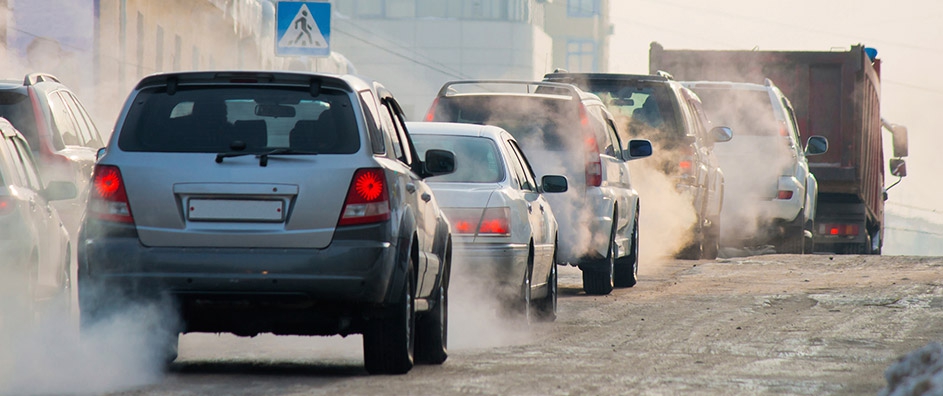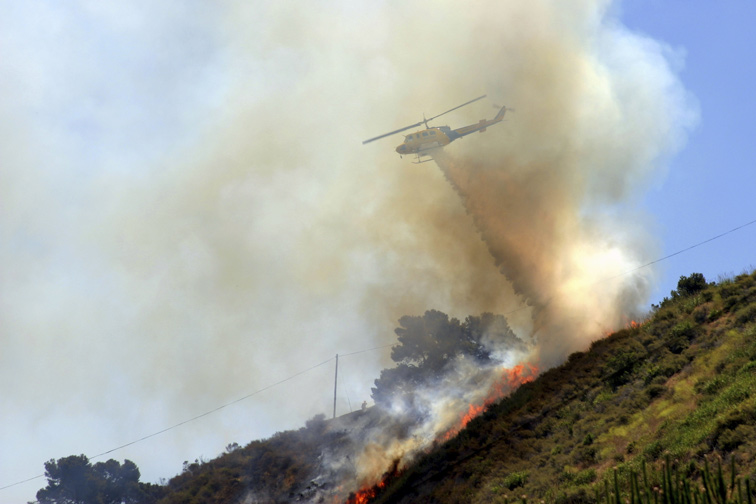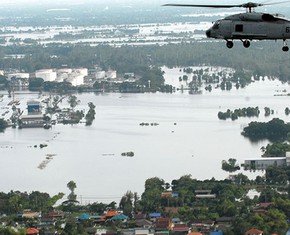The views expressed in our content reflect individual perspectives and do not represent the authoritative views of the Baha'i Faith.
The Lord of all mankind hath fashioned this human realm to be a Garden of Eden, an earthly paradise. If, as it must, it findeth the way to harmony and peace, to love and mutual trust, it will become a true abode of bliss, a place of manifold blessings and unending delights. – Abdu’l-Baha, Selections from the Writings of Abdu’l-Baha, p. 275.
On February 6, 2014, Peter Adriance, the Representative for Sustainable Development for the Baha’is of the United States, was one of several representatives of faith communities who spoke in support of the U.S. Environmental Protection Agency’s proposed carbon pollution standards for new power plants. This is what Peter had to say:
I appreciate EPA’s efforts to clean up our environment through these standards, which will reduce dangerous emissions. They will protect the health and well-being of all citizens and the web of life upon which we all depend. Currently, power plants are responsible for about 40% of US national carbon emissions. The impacts of these emissions are increasingly being felt in communities here at home and around the globe. From extreme weather events to droughts, floods, wildfires, the spread of vector-borne diseases, increased levels of asthma and more, there is growing evidence that carbon emissions are causing chaos and loss of property and life, often in communities ill prepared to deal with the impacts.
Knowing the importance of reducing carbon emissions, then, why would we allow new power plants to be built without any restrictions on the carbon they emit? These standards can help to discourage the investment in infrastructure that will lock us into dangerous levels of emissions for decades to come. The new standards will serve as an incentive to develop clean energy sources, including renewables.
More than purely an environmental issue, the setting of carbon standards is an issue of fairness, equity and justice, as many speaking here today will testify. President Obama has stressed this same point himself. In his words: “We have a moral obligation to future generations to leave them a planet that is not polluted and damaged.” We in the faith community would, of course, agree. But it is not only future generations that will bear the impacts of climate change. They are being felt now, most intensely by those populations around the world who are least able to cope with them. We must act with great conviction and haste to move toward solutions.
The central principle of the Baha’i Faith is the oneness of humankind. This principle has deep implications for policy in many arenas. It should guide us to seek solutions that are equitable and just, treating all people as members of one human family. EPA’s proposed carbon standards for new power plants represent one way that this principle can be put into action.
I was fortunate last week to attend the 14th National Conference and Global Forum on Science, Policy and the Environment. The focus there was on “building climate solutions”. The good news is that solutions are within our reach, and many are being implemented. Several presenters acknowledged the social costs and ethical dimensions of the climate challenge. Renowned climate scientist, Dr. Richard Ally, was emphatic about this. He referred to “the Golden Rule issue” – We must do unto others as we would have them do unto us — but right now our emissions and their impact on others is taking us in the wrong direction. He said, if we take the right steps in limiting our emissions, we’ll bring about a stronger economy, more jobs, enhanced national security, and a cleaner environment. We will also be more consistent with the Golden Rule. If we continue with business as usual, the opposite will result. EPA’s proposed carbon standards for new power plants are an important addition to the mix of solutions we so desperately need.
People of faith across the country are putting their heads and hearts together to address the climate issue. Later this month people of all faiths, including Baha’is, will take part in the National Preach-in on Climate Change, organized by Interfaith Power and Light. In churches, mosques, synagogues and Baha’i centers around the country, they will be discussing climate change from a faith perspective, taking action to reduce their own emissions, and sending messages to members of Congress asking them to do their part in moving us toward a low-carbon energy future.
In order to make real progress, national policies need to be set to address major sources of emissions. Adopting EPA’s proposed carbon standards for new power plants is an important move in that direction.
My hope is that our generation will be able to leave the world directed towards a better future than the one towards which we are currently headed, a world in which all people will be able to lead safe, productive and healthy lives. I thank EPA for its efforts to point us in that direction.

















Comments
Sign in or create an account
Continue with Googleor